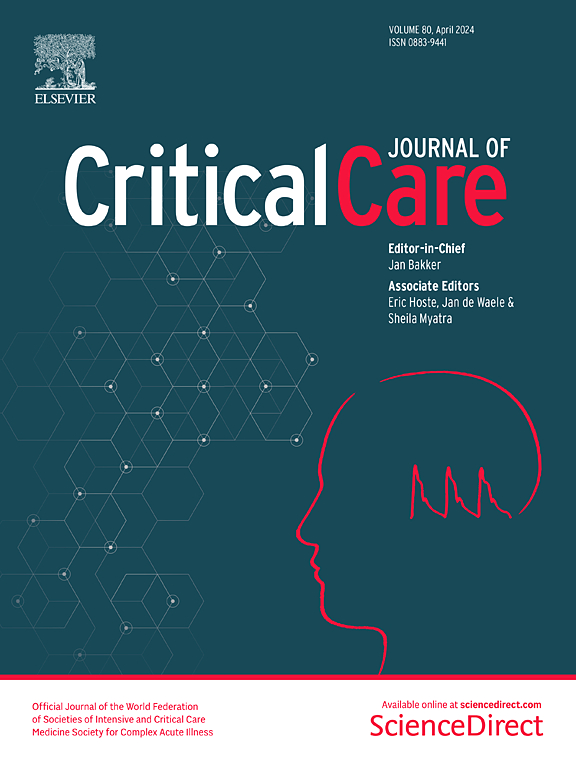Molecular diagnostic technology: beyond analytical accuracy
IF 9.3
1区 医学
Q1 CRITICAL CARE MEDICINE
引用次数: 0
Abstract
Infectious diseases cause high morbidity and mortality, and early, effective antimicrobial therapy improves outcomes. However, conventional microbiology methods like culture are slow and insensitive. Emerging molecular diagnostics—such as multiplex PCR (mPCR), droplet digital PCR (ddPCR), and metagenomic next-generation sequencing (mNGS)—offer rapid, accurate pathogen identification. Challenges persist in result interpretation (e.g., setting positivity thresholds, low positive predictive value) and clinician trust. While molecular diagnostics excel in sensitivity, their real-world impact on specificity and patient prognosis - clinical accuracy -remains limited. Key hurdles include patient selection, timing, result interpretation, and pathogen relevance. Addressing these gaps is critical for standardizing these technologies and maximizing their clinical benefit.分子诊断技术:超越分析精度
传染病导致高发病率和死亡率,早期有效的抗菌治疗可改善结果。然而,传统的微生物学方法,如培养,是缓慢和不敏感的。新兴的分子诊断技术——如多重PCR (mPCR)、微滴数字PCR (ddPCR)和新一代宏基因组测序(mNGS)——提供了快速、准确的病原体鉴定。在结果解释(例如,设定阳性阈值,低阳性预测值)和临床医生信任方面仍然存在挑战。虽然分子诊断在敏感性方面表现出色,但它们对特异性和患者预后的实际影响-临床准确性-仍然有限。主要障碍包括患者选择、时机、结果解释和病原体相关性。解决这些差距对于这些技术的标准化和最大限度地发挥其临床效益至关重要。
本文章由计算机程序翻译,如有差异,请以英文原文为准。
求助全文
约1分钟内获得全文
求助全文
来源期刊

Critical Care
医学-危重病医学
CiteScore
20.60
自引率
3.30%
发文量
348
审稿时长
1.5 months
期刊介绍:
Critical Care is an esteemed international medical journal that undergoes a rigorous peer-review process to maintain its high quality standards. Its primary objective is to enhance the healthcare services offered to critically ill patients. To achieve this, the journal focuses on gathering, exchanging, disseminating, and endorsing evidence-based information that is highly relevant to intensivists. By doing so, Critical Care seeks to provide a thorough and inclusive examination of the intensive care field.
 求助内容:
求助内容: 应助结果提醒方式:
应助结果提醒方式:


